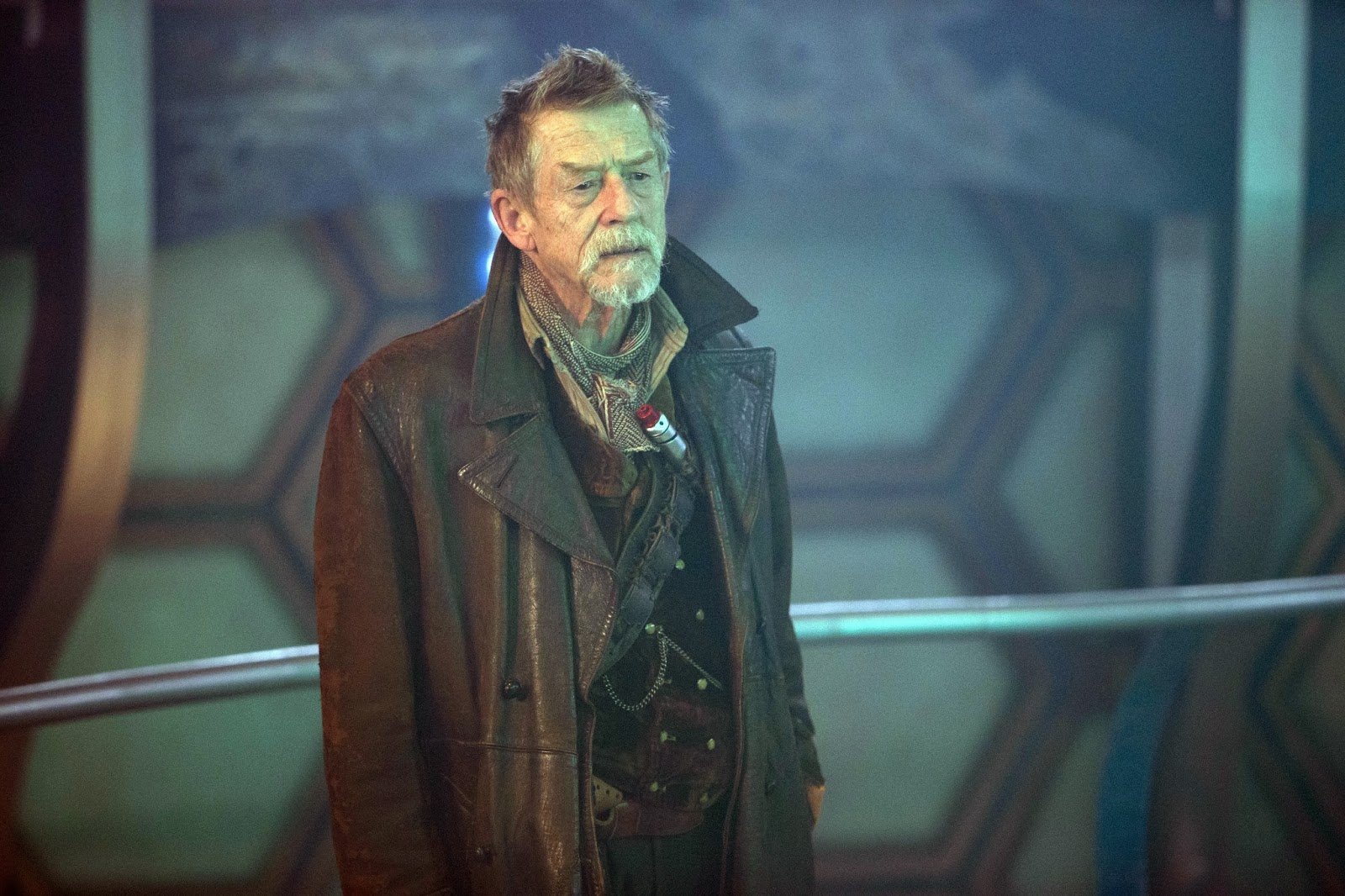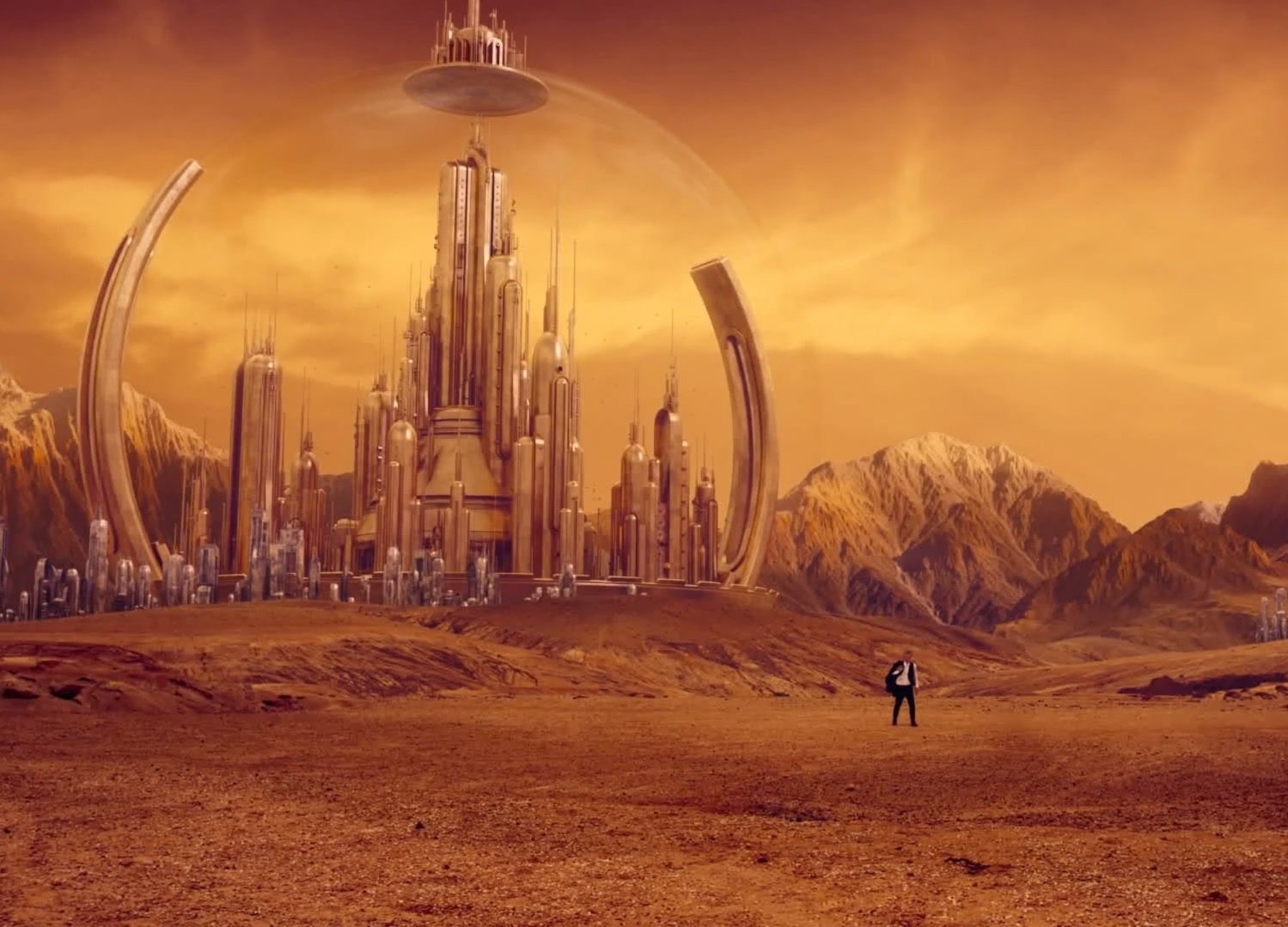Steven Moffat did something brilliant in The Day of the Doctor: he saved Gallifrey. Well, the Doctor did. But more than that, he made it so the Doctor never actually destroyed his home planet at all.
And Moffat feels guilty about it:
“The Day of the Doctor was a success. Record ratings, awards, rave reviews. By any measure, it did alright. But… I’m still haunted by the guilt.
“I know some of you, including friends of mine, were upset that we reversed the outcome of the Time War. My defence, however feeble, is that given the chance, the Doctor would do exactly that. And it was his birthday, how could I deny him that chance? What could define him more? This man who always finds another way? And there he is, at every moment of his life, proving to himself – literally – that there is always a better path.
“Ah, well. My heart was in the right place, at least. But in this job you always need two!”
But should he feel guilt?

Naturally, everyone is different, yet the majority of fans seem pretty happy with the decision. Sure, there was a place for the Doctor’s brooding, but it was the 50th anniversary. We needed something upbeat and hopeful. We needed something true to the character. And he’s right, isn’t it? The Doctor is a killer, but he always has good intentions, and genocide (effectively) isn’t a prospect the Doctor would revel in – particularly not that of his own people.
Perhaps the only way an audience could accept the Doctor killing the Time Lords and the Daleks with them was to be largely unaware of the circumstances. That’s how Doctor Who played out from 2005 to late 2009. And then, in The End of Time, Gallifrey briefly returned, and we learnt the Time Lords’ terrible plan. That was only the plan of the High Council, and those shouldn’t doom an entire planet and its people.
For the character, it works. But what about for the audience?
Part of the problem is that, one day, someone was bound to bring Gallifrey back anyway. It became inevitable when the Doctor first announced that there was a war and his people lost. Neil Gaiman previously joined a number of writers who said they, too, would’ve wiped Gallifrey off the table if they had been responsible for bringing the show back – and we’re not saying it was a wrong decision. It was perfect. But I’m one of many fans, I’m sure, who had concocted their own way the Doctor’s home could return.
Fans had been hankering for a glimpse at the Time War, and when that happened, arguably the bit we were most interested in was how it ended. What the Doctor did. It was an obvious choice for the 50th special. Nothing wrong with obvious, by the way. But seeing the Doctor actually destroy everything would’ve been a mistake. It would’ve been too far, too grim, too awful for the series to show.
There’s still place for brooding. When revealing River Song’s true identity in A Good Man Goes To War (2011), Steven said that an answer to a question, in a narrative sense anyway, should only ask more questions, and that’s what The Day of the Doctor did. Because the Doctor saved Gallifrey. Now what?

And that’s where we come to questioning whether the decision worked for Doctor Who‘s narrative as a whole. These questions are important: these questions open up more possibilities. As we say, Doctor Who has done brooding over being a mass murderer – there’s only so much it can do before it gets seriously depressing and hampers the show. There was a reason the Eleventh Doctor was described as “the one who forgets”. Already it was becoming very melodramatic – in particular, I’m thinking of The Doctor’s Daughter (2008), in which the Doctor tells Jenny that being a Time Lord is a “shared suffering.” Crikey. Really?! Okay…
So now what?
Gallifrey is back – somewhere. In Hell Bent (2015),we learnt that Gallifey is “currently positioned at the extreme end of the time continuum, for its own protection. We’re at the end of the universe, give or take a star system”. What that actually means is ambiguous, and actually, the Series 9 finale glossed over Gallifrey’s return anyway. It still leaves us with pressing questions. Will it actually be integrated back into the universe? When is the right time for it to return? How should it return? And maybe the biggest question of all…
How could Gallifrey come back without igniting the Time War again?
That’s huge. I mean, there was half a universe surrounding Trenzalore, desperate for Gallifrey not to return – because the Daleks would once more threaten everything. I wonder if this has been foreshadowed a little in Asylum of the Daleks (2012) in which Oswin hacked into the Pathweb and erased all memories of the Doc. Might this not be dramatic enough? Moffat ably shifted direction in Hell Bent, from Gallifrey to Clara, which is a neat idea, changing the dramatic focus to a companion.
Missy also threw in the idea that saving Gallifrey saved him/her too, and this is the crux of the matter: if Gallifrey can return, what else could come back?

I’m not sounding the trumpet for the return of the Rani or Romana or whatever (that would be just fan pleasing for the sake of it); I’m merely suggesting that saving Gallifrey opens up a lot more opportunities than leaving it in ashes.
This gives the overall narrative a new drive. It’s exciting. As to how a writer would handle such a monumental task, I’m clueless. Doctor Who should be Doctor Who. The Doctor needs to be a mystery in general. That’s how Andrew Cartmel made the Seventh Doctor era so memorable (oh, go on; tear me to pieces in the comments! I’m prepared for it!). And each time the TARDIS makes a return trip to Gallifrey, that mystery is chipped away, just a little. The War Games made the Time Lords awesome and terrifying, and since then, they’ve not really helped the show much. There are exceptions, of course – hello, The Deadly Assassin – but overall, they seem to be bumbling idiots.
Okay, so that’s the future. Ah, but what about the past? Does bringing back Gallifrey undermine the Ninth, Tenth, and the majority of the Eleventh Doctor’s adventures?
Well, no. Not really. It makes it all the more tragic. That Doctor is still utterly convinced he’s a monster, and that’s that.
That we know differently doesn’t take away from the drama of The Waters of Mars or The End of the World, Father’s Day or The Doctor’s Wife. Just because a character is unaware of something doesn’t make any ill feeling redundant. If anything, it highlights it, and makes that character even more sympathetic. Rewatching those stories, knowing something the Doctor doesn’t, adds more gravitas to the situation, makes these tales more interesting and somehow fresher. Try it. I have been.
But what do you think? Should Mr Moff feel guilty? Or was it absolutely the right move to make, at precisely the right time?
(Adapted from an article published on Kasterborous in 2015.)
